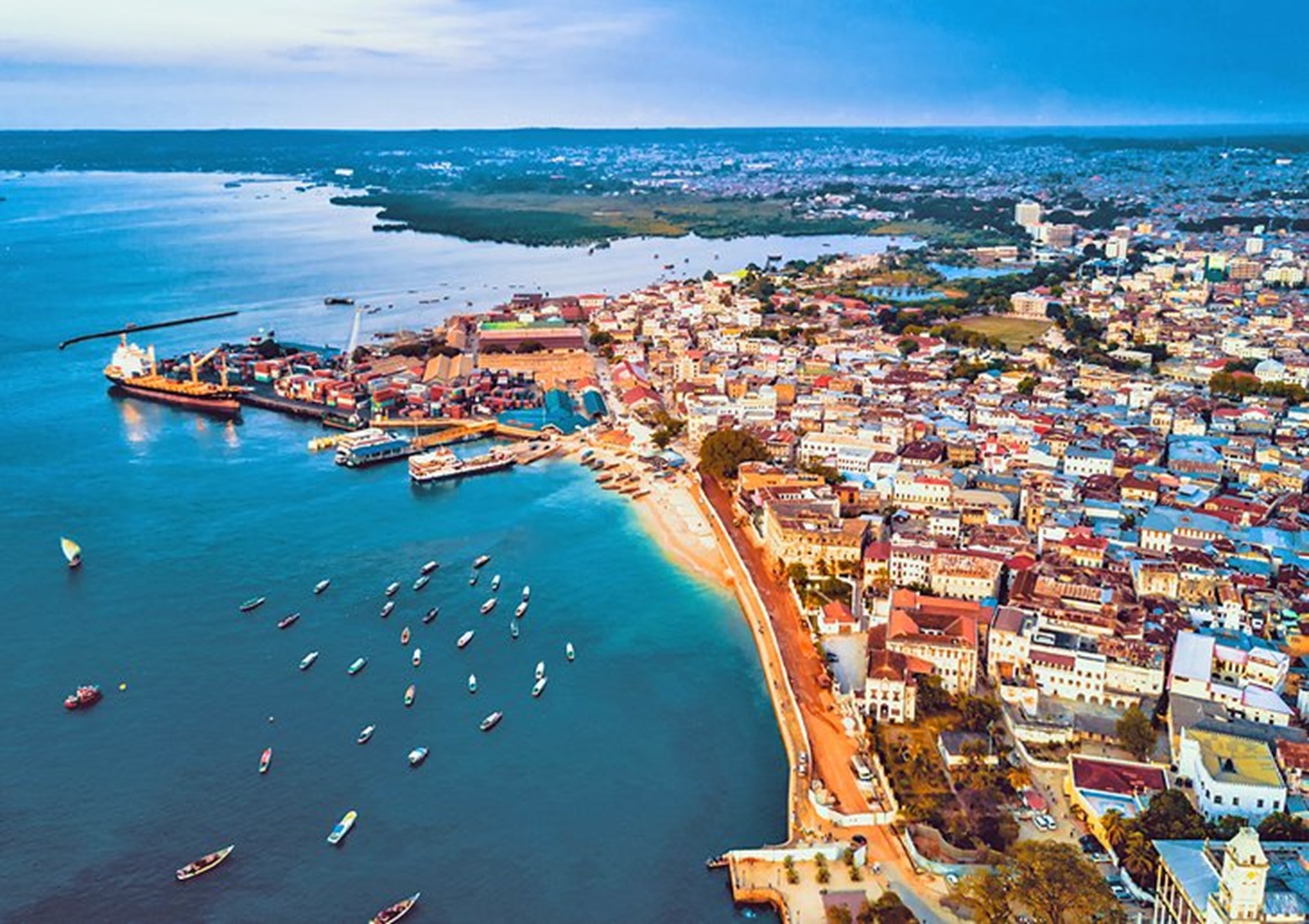Tanzania, Growing an Economy, Educational Advancements, Forward Thinking and Reform.

Africa, Oct. 20, 2023 (PlatoData via 500NewsWire) — Much like other countries in sub-Saharan Africa, Tanzania is currently going through a period of change. The nation is dealing with significant difficulties in various aspects of life, but it’s also seeing some positive shifts take place. The key factor in how Tanzania is seen by the outside world is the way in which President Samia Suluhu Hassan handles things. With a new president, there is always going to be talks of changes in the perspective of the country. Let’s examine Tanzania and its presence in the international community before and after Samia Suluhu Hassan.
Nearly all government agencies, such as the United States Agency for International Development (USAID) and the Ministry of Foreign Affairs of Denmark, describe Tanzania as an economic “rough diamond”, an untapped potential. Since the late 90s and the early 2000s, the country has experienced huge economic growth: “The rate of economic growth increased from 3.5 pct. in the 1990s to 7 pct. in the 2000s. Despite the global financial crisis, growth rates have been remarkably stable over the last decade, and they are expected to continue or even increase in the foreseeable future” (The Danish Ministry of Foreign Affairs).
This economic growth can partially be attributed to the booming population of the country, which has quadrupled between 1963 and 2012. Population growth remains high, at nearly 3 pct. annually. If this growth rate continues, there will be 100 million Tanzanians in 2042.
Furthermore, according to USAID, there are four main challenges that the country has to address, those being:
- Low quality of public services including health, education, and water, in addition to a lack of institutional capacity.
- Limited government accountability and a lack of public demand for improvement.
- Widespread corruption and public sector inefficiencies.
- Diminished checks and balances resulting from an imbalance of power between branches of government, with civil servants and elected officials tied to central government patronage rather than citizen constituents.
The country has also been praised by certain organizations as a bastion of peace and stability despite its tribal divisions. Despite being surrounded by neighbours who are in a near-constant state of civil unrest, Tanzania has remained largely free of intertribal conflict. The International Science Council emphasises this in an article titled Living Together in Peace: the United Republic of Tanzania, an icon of hope: “Tribal diversity in Tanzania is conspicuously embraced, celebrated, and inter-weaved in both modern and rural lifestyles. The sense of cohesion and nationalism exercised for decades by its leadership has propelled the country to be admired regionally as a peace haven despite being surrounded by neighbours drowned in civil discordance.”
The image of President Samia Suluhu Hassan in the international community is an overall positive one. She is seen as a figure of reconciliation and forward-thinking. Being the first female leader of the united Tanzania was naturally always going to give her an optics boost, especially in the west, where gender inclusivity is very important. Even some western media outlets have written in praise of her, such as in Conversation.com, where she was praised for her work on rebuilding the country: “Hassan has made a significant break from her predecessor. There was little civic and political space under the late president. There was violent crackdown on the opposition and the media. Hassan has placed strong emphasis on reconciliation, resilience, reform, and rebuilding. She has reversed most of her predecessor’s retrogressive policies. For example, she has ended the ban on pregnant schoolgirls in classrooms. She has also opened up the country to foreign investments.” Reconciliation, resilience, reform and rebuilding have been the main overarching goals that the president has emphasized during her inauguration and also throughout the entire presidency thus far.
The president is actively working towards reconciling all major political parties, with a significant focus on CCM and its largest rival, Chadema. A lot of progress was achieved during the National Conference on Justice, Peace, and Reconciliation in 2022. The Tanzania Centre for Democracy (TCD) took the lead in organizing this national gathering, held at Treasury Hall in Dodoma on April 5th and 6th, 2022. Several partners lent their support to this important peace and reconciliation conference, including the Hanns-Seidel Foundation (HSF), represented by Mr. Karl-Peter Schönfisch, the Resident Representative for Tanzania and Uganda, along with Kadele Mabumba, HSF Program Manager. The German Ambassador, Ms. Regine Hess, also graced this historic conference with her presence.. The national conference on Justice, Peace and Reconciliation was officiated by the President herself President Hassan assured political stakeholders and the general public that she would be ready to receive and work on outcomes of the conference submitted to her office to amend the Political Parties Act and the Election Act, yet she insisted that the recommendations should reflect the country context and environment in which the government is operating. In her introductory speech, President Hassan called upon all members of political parties to engage in transparent discussions regarding matters of public concern, as well as those affecting political stakeholders, including the parties themselves. She praised the political parties and emphasized that Tanzanians hold the answers to their own political issues. Consequently, she encouraged them to engage in debates and dialogues to formulate practical solutions tailored to the Tanzanian context.
Significant efforts have also been directed towards revising existing laws, particularly in the realm of economic reforms. President Samia Suluhu Hassan of Tanzania has engineered a remarkable transformation of the country’s economy, with the GDP surging from $69.7 billion in 2021 to an impressive $85.42 billion in 2023. This economic growth underscores Tanzania’s emergence as a dominant force in the East African region, and President Hassan deserves recognition for implementing policies that have invigorated the nation’s economy since assuming office following John Magufuli’s passing. President Samia has initiated a series of reforms to foster Tanzania’s economic growth. Her agenda includes modernizing the agricultural sector to enhance productivity and efficiency. This has been bolstered by the introduction of various government subsidies and credits. Trade liberalization policies, such as revised import tariffs and tariffs on remittance services, have opened up new avenues for trade and investment. The President has also started reforms to facilitate greater access to finance for small businesses, including easing restrictions on bank loans for small- and medium-sized enterprises (SMEs).
President Samia has also made educational advancements a major part of her vision for Tanzania’s economic development. The government’s unwavering commitment to education has led to increased investments in infrastructure and enhancements in educational quality. As a result, access to schools has improved, evident in higher enrollment rates and reduced dropout rates. These reforms have been especially targeted at addressing gender inequalities in education and the workforce. Initiatives like the “National Girls Education Initiative” have been launched to eradicate gender disparities in educational access and the job market.President Samia Suluhu is also seen as politically resilient, taking no compromise when it comes to improving democracy within Tanzania. Recently, President Samia Suluhu Hassan and Zanzibar President Dr Hussein Mwinyi of Tanzania have been lauded for fostering a positive political climate in the East African nation. A recent special meeting involving approximately 700 participants, including political parties and democracy stakeholders, concluded with 15 resolutions commending their efforts. They were particularly praised for establishing task forces to assess the political climate and recommend improvements, some of which have already been implemented, including the lifting of political rally bans. They also highlighted the need to strengthen morality from the family level, boost civic education and constitutional awareness, and develop strategies to increase the representation of women, youth, and people with disabilities in politics and leadership. The consensus was that political parties should avoid using religious platforms for political activities and respect the country’s laws to maintain peace. In conclusion of the conference the political party leaders and their followers were encouraged to avoid using offensive language, spreading misinformation, and making defamatory statements. Instead, they should focus on promoting their policies with appropriate language. The police force was also urged to operate effectively and professionally during elections.
The president has recognized the need for adjustments and reforms in the political, social and economic institutions. This seen by her recent decision to examine the police force and other state apparatus’ as a means of rebuilding the country.
To summarize, Tanzania is a growing economy that faces societal challenges. In the past, international organizations have repeatedly criticized the lack of democracy and human rights abuses in the country during the early 21st century. Nonetheless, despite past difficulties, the nation has largely avoided significant civil unrest and conflicts. Under Samia Suluhu’s leadership, Tanzania’s reputation seems to be improving rapidly. She is a respected and non-divisive figure, even among the opposition, which enhances her standing on the global stage as a unifying force for the entire nation. The future of her political career rests on her ability to garner support among her base, keep the opposition somewhat happy and continue growing the economy and the infrastructure. She’s done it great so far, and all signs point to a successful reign as president. Tanzania’s first female leader is writing herself into the history books.
Contact Details:
Alexander Scott
ialexanderscott1987@gmail.com



